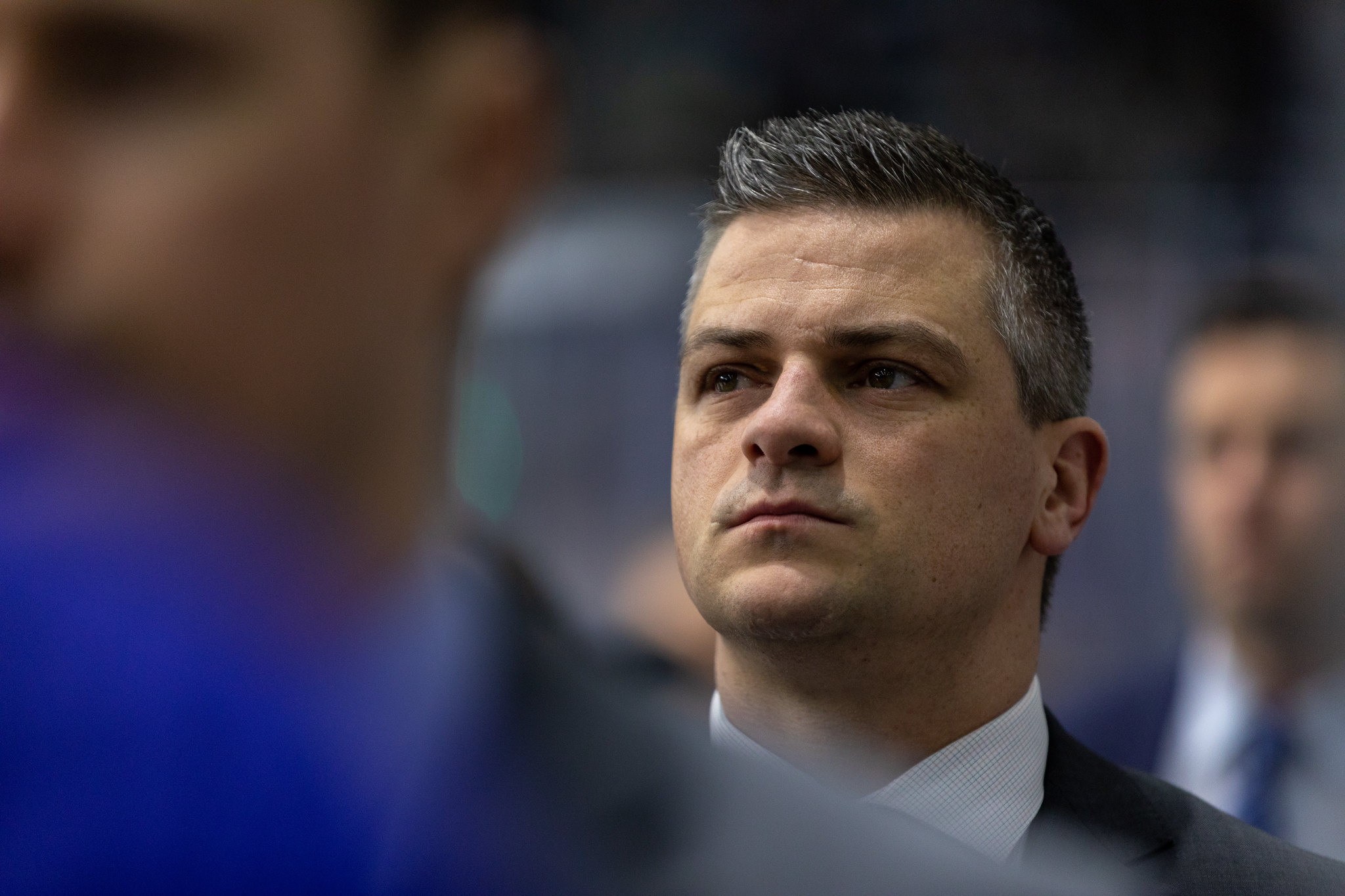Toronto Maple Leafs head coach Sheldon Keefe joined Tim & Sid on Friday evening, discussing the team’s 15-5-2 start under his leadership, his approach to practice and coach-to-player communication, the criticism that his team lacks playoff-style toughness, and the re-signing of Martin Marincin.
It seems the players have embraced the way you have approached practice. We’ve heard stories of having two different rinks going, five or six coaches at the same time, the music playing — that is unconventional in today’s NHL. When along the way did you figure that was the way you wanted to run some of the off-day stuff? What are you hoping to accomplish by doing it?
Keefe: I think my time with the Marlies was a good time for me to really experiment with different things with the number of resources we had there in terms of coaches and skill coaches with very specific expertise, and also just the availability of the performance center with multiple sheets of ice to do different things and utilize different space with the development program. We really got to see the benefits of really having deliberate practice and skill work to refine the skill sets of the players.
When you get to the NHL, you’re doing with players who have great skills. Even they, over the course of a long season, require some fine-tuning and proper repetitions to refine heir game in that way.
It also just kind of breaks it up a little bit in terms of the monotony of the schedule and the season. We are always talking about preaching the same types of things with structure and all of that. To just sort of break it down more individually, I think, makes sense. The feedback so far has been good on that end.
15 wins in the first 20 games was a record for a franchise that is over 100 years old. How happy are you with the play of the team since you took over?
Keefe: I would certainly say I am happy. The players have responded very well. We have seen a lot of progress in some key areas — both offensively and defensively, and on special teams. Those are all the areas of game we’ve seen progress. I’ve been happy with it.
I’ve said a number of times, though, that what excites me the most is that we’ve seen progress — we’ve been able to have some success and get some positive results from the progress — and yet I still believe there is a lot of room for growth within our team and within the individuals. That is what really exciting — to just continue to keep working.
A lot of these players are also appreciating the open lines of communication going back and forth. They know where they stand. How have you evolved as a coach in that regard when it comes to communicating with players and how to treat players and how to let them know where they stand? Where do you feel you were a stop or two ago in junior to where you are now when it comes to that?
Keefe: I think that is an area that I’ve grown a lot. I certainly know it is an area I have spent a lot of time on in terms of reading and talking to different people and attending different conferences and courses — just learning about that side of the game and how much I’ve come to value that side of it.
So much attention, of course, goes onto the tactics and the decisions you make as a coach everyday in terms of practice and games and bench management and the like, but really, the softer skills when it comes to communication and creating an environment for players to thrive — that is what I’ve tried to spend the last numbers of years on with my own development. I’d like to think I’ve made some strides there. I am not perfect, by any means, and it is a challenge when you have upwards of 23 players on your roster to manage and a lot of staff as well that require managing and communication.
It is a big part of the job. That was probably the biggest area of growth for me that I recognize in the early going working with the Marlies, where it takes a lot of management and communication skills. I think it really is important. It has become even more prevalent with today’s athlete and the way the game and sport has evolved. I am trying to continue to grow in that area as well for myself.
It is such a different dynamic with the millennial or Gen-Z generation. You would’ve seen that from playing, right?
Keefe: Yeah, I think so. I’ve said it to a number of people. I played in the early 2000s in the NHL and the minor leagues, and I look at it and there are still some players playing in the league that I played against. I am not all that too far removed from it, but at the same time, I have the experience of working at the junior-A level and working at the OHL level and the American league — coaching all of these various levels and coming up with a lot of these younger players through their path to getting here. I’ve worked with all sorts of different age groups. I think those sorts of things have helped me and provided me with some proper perspective.
Of course, I’ve just got an excellent staff around me as well from management all the way down to our assistant coaching staff and training/equipment staff all the way through here with the Leafs. We’ve just got some great people.
One of the biggest opinions you hear a lot in the market is that the team needs to play a tougher, heavier brand of hockey to be successful in the postseason. Have you and Kyle Dubas decided you don’t necessarily believe in that?
Keefe: When Kyle and I do talk with this team and when we’ve worked together previously, we don’t for a second disregard the fact that you need to be competitive and you need to have a level of physicality that is going to allow you to play the way you want to play and also persevere when things are difficult. I think we probably look at toughness in a different manner than others do. We would describe it mainly as just the ability to play through difficult circumstances. That, to us, is toughness.
We have a high level of skill. Perhaps other teams would say, “We’re really tough or we’re a really physical team, but man, I wish we had a little more skill.” Other teams are saying that. We are on the other side. We feel that we’ve got an abundance of skill and the ability to make plays which ultimately lead to having the puck which ultimately leads to scoring goals at a high rate. That is the object of the game, ultimately.
That is what we focus on a lot. It’s not lost on us that we need to create an environment that encourages our players to be competitive and be ourselves when times are most difficult. That is what we are trying to focus on every day with our guys.
Martin Marincin got a one-year extension signed today. He has been pretty polarizing among your fans. What do you guys see in him that others don’t?
Keefe: I think what we see in him: First of all, he is a guy we are very comfortable with in the organization. He has served the organization very well in his role as a depth defenseman, be it playing in the minors and being a big part of our Calder Cup championship team there with the Marlies and being a big part of the development of our young players, and he’s also filled in well when there have been injuries or whatever the situation might be. You need to have really good depth in the NHL and have depth that fits in well in the salary cap and the structure — all things that are over my head and I’m not overly concerned with, but at the management level, that is important.
I can also say from my time in the American league, when it comes to players who can play in the American league but you need them to be players who can fill in and play minutes in the NHL, that is extremely valuable. As I see it in my short time in the NHL, I think Marincin is as good of a dept defenseman as there is. We feel pretty good about that.

































